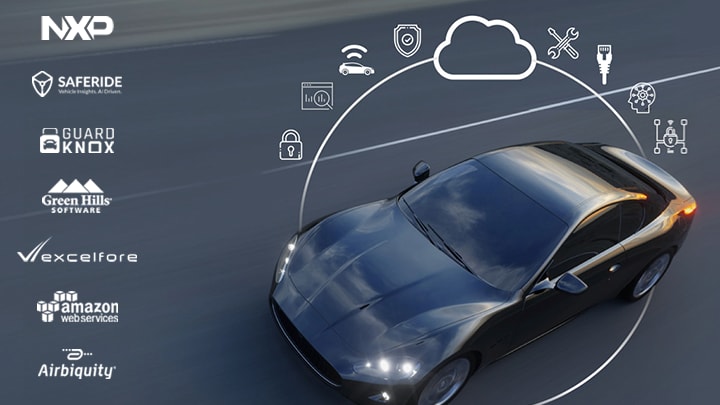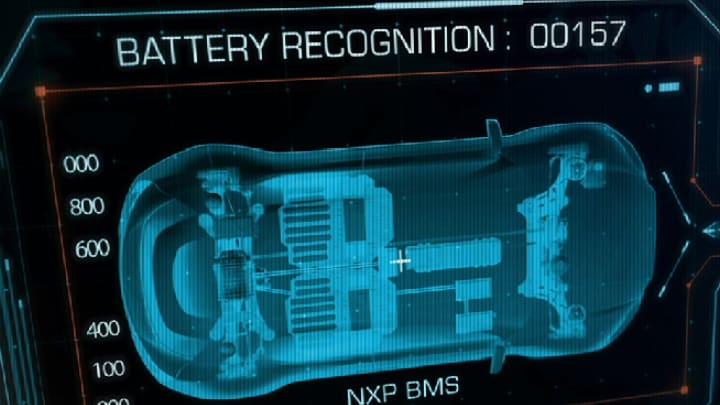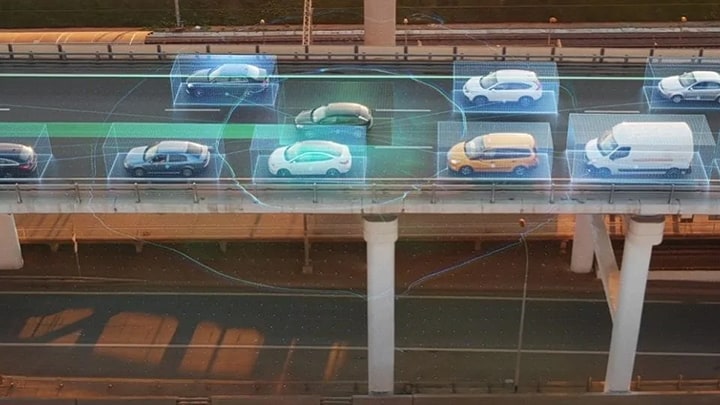The automotive industry is crossing the point of no return for modern digital transformation, with high-performance computing and in-vehicle networking plus cloud connectivity and security to drive the current vehicle architectures and the vehicles themselves into the future. Modern automotive architectures address safety concerns, unlocking the value of fast-growing vehicle data, improving user experiences and enabling real-time vehicle monitoring with cloud connectivity and over-the-air updates. In-vehicle networked electronic control units (ECUs) and wireless connectivity are enabling "connected vehicles" to sense the environment and collect a tremendous amount of vehicle data: nearly 95 petabytes of data were generated in 20191.
These connected vehicles are shifting the economic balance of the entire automotive market due to a surge in demand for enhanced user experiences, the rise of integration between smartphones and vehicles, stringent government regulations concerning telematics and increased adoption by original equipment manufacturers (OEMs). Connected vehicles generate new forms of value for carmakers, their supply chain and consumers: improving journeys for drivers, reducing accidents on streets and helping to cut emissions. Ptolemus Consulting estimates the connected vehicle global market will worth over $355 billion by 20302, with more than 690 million connected cars in the world the same year3, according to Statista.
Soon, car value will heavily rely on the services enabled by connected vehicle data (CVD) as they offer appealing opportunities for the data-enabled marketplaces, unlatching innovations across the automotive market and beyond. Ptolemus Consulting also forecasted almost all vehicles in the EU and the US will be connected within the next decade and 88% of cars sold worldwide will be pre-connected to networks using embedded devices4.
Drivers have embraced the benefits experienced with each minute saved on daily commutes, improved safety with road traffic information and the ability to integrate their smartphones into vehicles. Carmakers are capitalizing on connected vehicle features by using service-oriented gateways (SoGs) to help make cars safer, smarter and greener—enabling new cars to be an extension of their owner’s connected lives. SoGs go beyond traditional automotive gateways by providing vehicle applications processing in addition to secure networking, helping to consolidate ECU tasks, converting raw vehicle data into information and providing new services through in-vehicle edge computing.
Knowing more about customers' preferences and the real-time state of their vehicle will help carmakers and their partners provide higher levels of service, unlocking the value in data and pushing vehicle networks' evolution. Fusing CVD and personally identifiable information (PII) will provide depth and richness to the existing services and unleash innovations in products and services, like vehicle health monitoring or prognostics, vehicle-wide over-the-air (OTA) updates, edge data analytics or car-sharing support—entirely transforming the automotive landscape for good. SoGs take advantage of the digital transformation by supporting significant new business opportunities and revenue streams for carmakers and their suppliers, third-party application developers and other service providers. The World Economic Forum estimated that the automotive industry's digitization might reach $0.67 trillion of value5 at stake for automotive players and more than $3.1 trillion in societal benefits.
NXP and its industry-leading partners offer a unique webinar series to start designing SoG solutions with high-performance computing, networking, cloud services and OTA updates to provide seamless and personalized new vehicle services. Join technical experts from Amazon Web Services (AWS), Airbiquity, Green Hills Software, Excelfore, GuardKnox Cyber Technologies and SafeRide Technologies for a glimpse of state-of-the-art solutions capabilities and the advantages of the NXP S32G vehicle network processor and its comprehensive software enablement:

Join this one-of-a-kind training program around service-oriented gateways and their potential within the services-driven world we live in, including products that adapt over time and consumers willing to pay or subscribe—the demand for digitally enhanced experiences is increasing among them. Carmakers, technology suppliers, application developers and service providers are helping to accelerate the digital transformation of the automotive industry.
1. Ctrl-Shift, 2020, Growth of the Connected Vehicle Data Market The implications of personal data and emerging US legislation
2. PTOLOMEUS Consulting Group, The Vehicle Data Market Global Study
3. STATISTA, 2020, Connected vehicle fleet from 2025 to 2035, by key region
4. PTOLOMEUS Consulting Group, The Vehicle Data Market Global Study
5. World Economic Forum, Reinventing the wheel: digital transformation in the automotive industry





